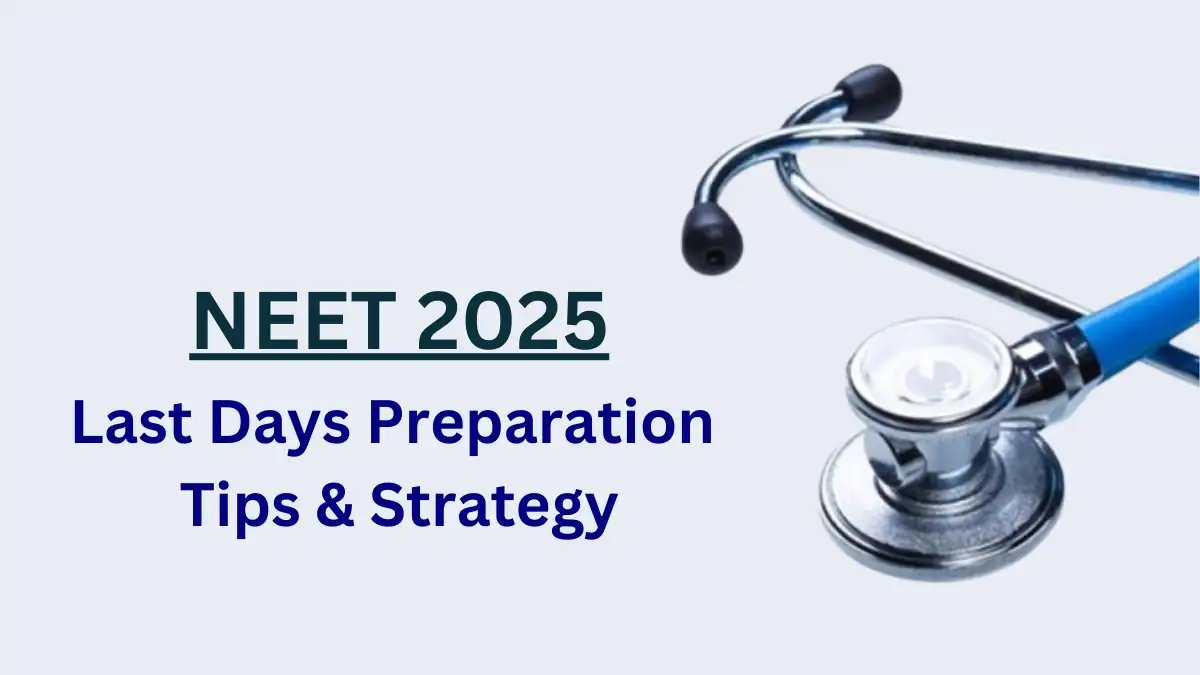The National Eligibility cum Entrance Test (Under Graduate), also called NEET-UG, is one of the primary gateways for medical professionals in India. The responsibility of conducting the prestigious NEET has been assigned to the National Testing Agency (NTA), established by the Ministry of Human Resource Development (MHRD) of the Government of India. The NEET 2025 is conducted for the selection of candidates for admission to the bachelor’s degree courses of the medical and dental colleges for MBBS and BDS courses respectively, run with the approval of the Medical Council of India (MCI) or the Dental Council of India, under the Ministry of Health and Family Welfare of the Govt of India.
NEET 2025 Eligibility
As per the present norms, those who are interested in the medical profession and have passed 10+2 with 50 percent marks in Physics, Chemistry, and Biology can apply for the test. There is, however, a relaxation of five to ten percent marks for candidates belonging to the reserved categories. The age limit is 17-25 years which is relaxable for up to five years for reserved candidates.
When will NEET 2025 be held?
Presently, the frequency of the NEET-UG is once a year. The registration for the NEET (UG) 2025 will begin from the month of January 2025. The NEET UG 2025 exam is expected to be held on Sunday, May 4, 2025.
NEET 2025-Facing the Test
Evidently, the NEET UG-a highly competitive test is only a few days away and thus the preparation required at this crucial juncture of time should not merely be serious, but specific as well. Subsequently, your preparation on the day of the examination is not insignificant either.
NEET 2025 – The Penultimate Week
You Dos: It should always be borne in mind that the majority of questions asked in NEET-UG are based on NCERT books. Having said that, you need to go through the topic-wise headings in NCERT books and try to form a quick gist in your mind. Where there is any confusion, check the facts immediately.
The summary, as well as the supplementary readings given after each chapter is a must-read. Give priority to charts, diagrams, graphs, etc., mentioned in NCERT books.
There is no denial to the adage that practice makes one perfect. You should save your time daily for practicing a previous year’s question paper. It has been seen that on occasions, questions are asked in a similar pattern (if not the same) to that of previous years. Further. such practice will make you adept at time management during the actual examination. It will be helpful if you can practice on OMR sheets. Physiologically, you need to be hydrated throughout your sprint to the real test.
Proper sleep for around six hours is a must. Our memory is directly linked to adequate sleep. If If our our brain is not given rest, by way of sleeping, sometimes our rigorous efforts and burning the midnight oil may take a toll on our health.
Stress is very common. However, eating certain common fruits like bananas, and vegetables containing high-flavonoids like pumpkins and dark chocolates is found to be very helpful in reducing anxiety by way of releasing chemicals like serotonin, melatonin, etc.
Walking for 10 minutes every day in the morning or evening will provide more oxygen to the brain, thereby supporting healthy thinking.
Make a confident plan for sequencing the subjects to be attempted in the test as per your convenience; for example Physics-Chemistry-Botany Zoology: Zoology-Botany-Chemistry Physics, etc.
Give weightage to every subject. Your inclination towards any subject at the cost of the others may hamper your rank,
If you are away from home, talk to your parents/guardians over the phone or through Skype to help keep away negative thoughts.
You Don’ts: You should not burden your brain by overthinking about the consequences and results. Your thinking cannot improve your achievement but your consistent study can.
Avoid studying topics that are very new to you. The study during the run-up to the test should be limited to what you have already touched upon.
Avoid checking cut-offs of previous years. The overall performance of a butch can never be the same. Thus, checking cut-offs beforehand can be a futile exercise.
Avoid social media for a temporary period before the exam. You will have sufficient time to be socially connected once your examination is over.
Don’t skip your meals. You should take your meals on time so as to keep yourself fit and energetic.
NEET 2025 – The Exam Day
You Dos: Get up early and get your stationery items and other essentials ready for the examination. Moreover, you should check and confirm the feasibility of the mode of conveyance from your home to the test centre
Have a light breakfast. A heavy breakfast, mingled with the inevitable volume of stress, may either upset the tummy or lead to drowsiness.
Go through the ‘confused areas of your subjects and give a reading.
All the formulae, etc., should be glanced through.
You should reach the test centre well in advance. You should read the exam instructions very carefully.
Be very careful while mentioning your roll number in the OMR sheet.
You Don’ts: Avoid thinking about re-appearing in the test with better preparation. Be assured that you will excel in the present examination.
Don’t pay heed to what others are discussing or doing in the examination hall.
Avoid marking any answer until you are very sure. It may happen that the correct answer may come to your mind later and you may regret marking the wrong answer Never think of using any unfair means in the examination,
Don’t jump around questions across the subjects haphazardly
Have faith in yourself, study hard, and let all distractions be miles away. Best of luck!
